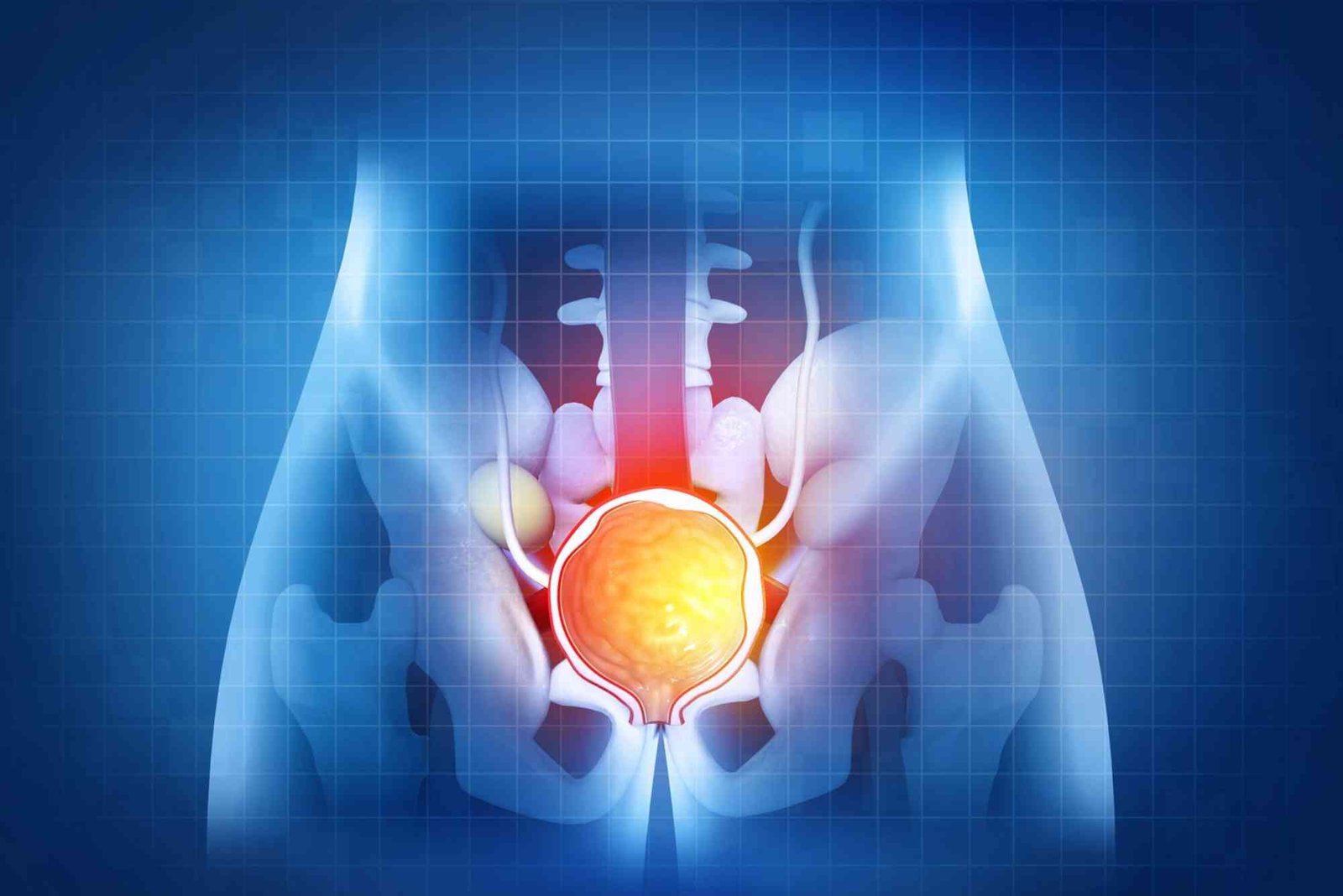Introduction
Benign Prostatic Hyperplasia (BPH), or an enlarged prostate, is a common condition that affects millions of men as they age. While many associate BPH with frequent urination or weak urine flow, some may wonder: Can BPH cause pain while urinating? This guide explores the connection between BPH and urinary pain through a clear, medically grounded, and practical step-by-step approach. Whether you are researching for yourself or a loved one, this comprehensive explanation will help you understand symptoms, causes, and what actions to take next.
Understanding BPH and Its Impact on Urination
Benign Prostatic Hyperplasia refers to the non-cancerous growth of the prostate gland, which surrounds the urethra. As the prostate enlarges, it can squeeze the urethra, obstructing urine flow. This obstruction is the main reason men with BPH experience symptoms such as difficulty starting urination, weak stream, or frequent nighttime urination.
When the prostate becomes significantly enlarged, the bladder must work harder to push urine through. Over time, this pressure may cause irritation and inflammation, leading to discomfort or pain during urination.
In other cases, the blockage can increase the risk of urinary tract infections (UTIs) and bladder stones — both of which contribute to painful urination.
Step-by-Step Checklist: Can BPH Cause Pain While Urinating
To answer the main question — yes, BPH can cause pain while urinating, but not directly in every case. It’s often a symptom of related complications. Let’s walk through a step-by-step checklist to understand how and why pain occurs and what to do about it.
Identify Common Symptoms
Before assuming the pain comes from BPH, it’s important to review the classic symptoms. These include:
-
Difficulty starting or stopping urination
-
Weak or interrupted stream
-
Urgent or frequent need to urinate, especially at night
-
Feeling of incomplete bladder emptying
-
Dribbling after urination
If these symptoms are accompanied by burning or pain, it may indicate inflammation or infection due to long-term urine retention.
Determine the Type and Location of Pain
The pain associated with BPH varies depending on its cause. Some men experience pain in the lower abdomen, while others feel it in the urethra or penis during urination. The pain may be:
-
Sharp or burning: Often linked to a urinary tract infection.
-
Dull or aching: Typically associated with bladder overdistention or prostate inflammation.
-
Intermittent: Suggests bladder stones or partial obstruction.
Documenting where and when the pain occurs helps doctors determine the underlying issue more accurately.
Rule Out Other Conditions
Not every case of painful urination in men over 50 is due to BPH. Conditions such as prostatitis (inflammation of the prostate), urinary tract infections, or even prostate cancer can cause similar discomfort.
Doctors typically use tests such as:
-
Urinalysis to detect infection
-
Prostate-specific antigen (PSA) blood test
-
Digital rectal exam (DRE) to assess prostate size
-
Ultrasound or cystoscopy to visualize the urinary tract
This diagnostic approach helps confirm whether the pain originates from BPH or another condition.
Understand How BPH Leads to Pain
When urine cannot flow freely due to prostate enlargement, it stagnates in the bladder. Stagnant urine creates an ideal environment for bacteria to grow, increasing the risk of infection. These infections, known as urinary tract infections (UTIs), cause inflammation and burning sensations during urination.
Additionally, constant pressure from the enlarged prostate can irritate nearby nerves and tissues, leading to chronic pelvic pain. In severe cases, bladder stones may form, causing sharp pain or blood in the urine.
So yes, while BPH itself does not directly “hurt,” the complications it triggers often do.
Implement Lifestyle Changes
For men with mild BPH symptoms and occasional discomfort, lifestyle adjustments can make a huge difference. These include:
-
Avoiding caffeine and alcohol: They irritate the bladder and increase urgency.
-
Reducing evening fluid intake: Helps minimize nighttime urination.
-
Practicing double voiding: Urinate, wait a few moments, and try again to empty completely.
-
Maintaining a healthy weight: Obesity increases pressure on the bladder.
-
Regular exercise: Improves circulation and reduces urinary retention.
These steps can prevent further irritation and reduce painful urination episodes.
Explore Medical Treatment Options
If symptoms persist or worsen, medical treatment is often required. Depending on the severity, doctors may recommend:
-
Alpha-blockers such as tamsulosin to relax prostate muscles and improve urine flow.
-
5-alpha-reductase inhibitors to shrink the prostate over time.
-
Antibiotics if infection is detected.
-
Anti-inflammatory medications to relieve pain and swelling.
In advanced cases, minimally invasive procedures like UroLift or Transurethral Resection of the Prostate (TURP) can relieve obstruction by removing excess tissue.
Monitor for Complications
Ignoring BPH-related urinary pain can lead to severe outcomes such as:
-
Chronic bladder infections
-
Kidney damage due to backflow of urine
-
Complete urinary retention (inability to urinate)
Regular check-ups and prostate health monitoring can prevent these issues.
Seek Professional Help Early
If you experience pain while urinating, especially with fever, blood in urine, or difficulty passing urine, seek medical attention immediately. Early diagnosis allows for simpler and less invasive treatment options.
For a more detailed understanding, you can learn more about can bph cause pain while urinating and discover expert-reviewed medical advice.
Prevention Tips for BPH-Related Urinary Pain
Preventing painful urination starts with maintaining prostate health. Here’s how:
-
Drink plenty of water throughout the day to flush out bacteria.
-
Limit spicy foods, citrus, and artificial sweeteners that may irritate the bladder.
-
Practice pelvic floor exercises (Kegels) to strengthen bladder control.
-
Schedule annual prostate screenings after age 50 or earlier if you have a family history of prostate disease.
Taking these preventive measures helps minimize symptoms and supports long-term urinary health.
Common Mistakes Men Make When Managing BPH
Even with good intentions, many men unknowingly worsen their symptoms by making avoidable mistakes:
-
Ignoring mild symptoms: Waiting too long allows the condition to progress.
-
Overusing decongestants or antihistamines: These medications tighten prostate muscles, making urination harder.
-
Reducing fluid intake excessively: This concentrates urine and increases irritation.
-
Self-medicating with herbal remedies: Some supplements interfere with prescribed medications.
Avoid these pitfalls and always consult a urologist before starting any new treatment.
Living Comfortably with BPH
BPH is a lifelong condition for many men, but with the right approach, it can be managed effectively. Maintaining open communication with your healthcare provider, following prescribed medication, and adopting healthy lifestyle habits can help you live without discomfort.
Emotional well-being also plays a key role. Anxiety about urinary symptoms often worsens perceived pain, so relaxation techniques and stress management are equally important.
Frequently Asked Questions
Can BPH cause burning during urination?
Yes, especially if the bladder or prostate becomes inflamed or infected due to urine retention.
How do I know if pain is from BPH or something else?
If you have other urinary symptoms like weak stream or urgency, BPH is likely involved, but only a doctor can confirm through tests.
Does BPH pain go away on its own?
Mild irritation may improve with hydration and rest, but persistent pain requires medical attention.
Can BPH lead to kidney problems?
Yes, untreated urinary blockage from BPH can cause back pressure on the kidneys and lead to kidney damage.
What foods worsen BPH symptoms?
Caffeine, alcohol, spicy foods, and processed meats can aggravate urinary discomfort.
Understanding whether BPH can cause pain while urinating is essential for timely diagnosis and relief. While the condition itself may not directly cause pain, its complications often do. By following the step-by-step checklist above — from recognizing symptoms to seeking medical advice — men can prevent discomfort and maintain a better quality of life.
If you’re currently dealing with urinary pain or suspect prostate enlargement, don’t ignore it. Early medical evaluation can save you from chronic issues and help you regain comfort and confidence.
For more valuable insights and expert health information, you can learn more about can bph cause pain while urinating or explore other educational categories like business & finance basics to expand your overall knowledge.
And if you’re curious about the broader finance definition or wish to understand how financial well-being impacts health decisions, these trusted resources are worth exploring.
Taking charge of your health starts with awareness — and the first step is understanding how something as common as BPH can affect your everyday life. Stay informed, act early, and prioritize your wellness.




